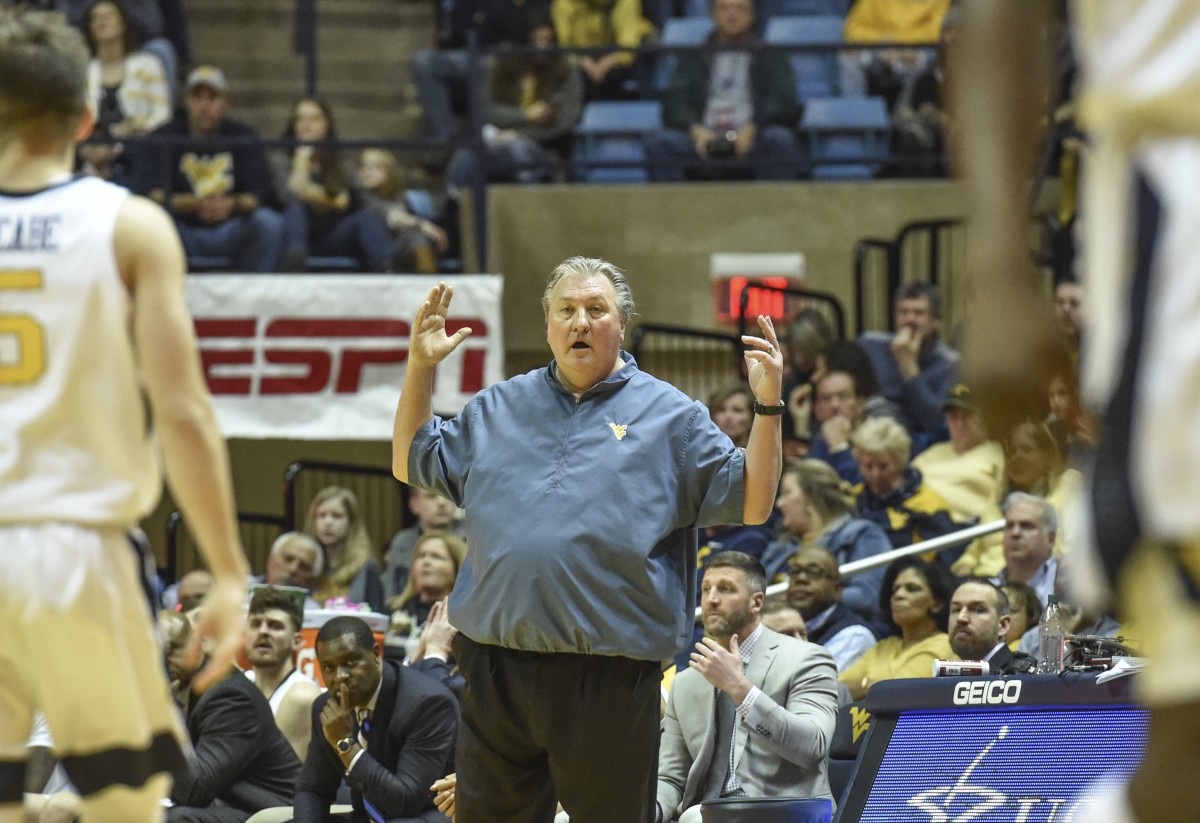MORGANTOWN — Isaac Likekele wound up and delivered what may officially go down as the low point of West Virginia’s season Saturday.
Having already dribbled through the little bit of a trap the Mountaineers defense attempted against the freshman from Arlington, Texas, Likekele was now all alone with no one but West Virginia’s Chase Harler to throw up any opposition.
He didn’t, which was pretty much par for the course for the Mountaineers on this day, following an 85-77 loss against Oklahoma State, at the WVU Coliseum.
Likekele’s dunk summed up the day, maybe this season for the Mountaineers.
If you thought last week’s second-half choke job against Kansas State was rock bottom, forget it.
This one blew that rock bottom cleanly out of the water to create a much lower place to nestle into.
West Virginia was just thoroughly beaten by the team that was a unanimous selection to finish last in the Big 12, according to the coaches’ preseason poll.
At home.
The loss creates an 0-4 start to conference play that can now only be compared to the Mountaineers’ 0-6 start in the 2001-02 (in the old Big East days).
Honestly, I’m not sure this season right now isn’t in worse shape. In 2002, former coach Gale Catlett was dealing with health issues at the end of his career and was also dealing with the behind-the-scenes happenings of Jonathan Hargett and whatever team chemistry issues that came along with him.
There are certainly issues this season, too, with Sagaba Konate’s knee injury and the will-he-or-won’t-he-play thing.
Beetle Bolden has generally played at less than 100 percent all season.
Derek Culver has become the team’s best player — he had 15 points and 15 rebounds against the Cowboys — and now you have to wonder how good he could have been right now if he had not missed the first 10 games of the season.
And even with all of that, this team should not be at this place of frustration and looking up at the rest of the Big 12.
They should not be at a place where they have no answers. They should not be at a place where they have to beg for effort from the only senior on the team in Esa Ahmad and then bench him when they don’t get it, which was the case Saturday against Oklahoma State.
It was Ahmad’s second benching this season, too, which makes you wonder just what the heck do you have to do to get your point across to some of these guys?
After the game, players talked of getting back into the film room and back to the “drawing board,” to get things fixed.
At this point, what can you fix? Are players suddenly going to stop drives to the basket? Are they going to guard on the perimeter?
Watching more film than Roger Ebert isn’t going to fix that.
Not this season, anyway, which brings up the area where you can compare some of the all-time worst seasons.
Take that 2001-02 season, the final one under Catlett and also the 13-19 season under Bob Huggins in 2012-13.
Maybe we kept hoping for some miracle turnaround, but it never came in those seasons.
Fixes come through graduations, new recruits and new seasons and it’s likely those things will have to happen to fix this mess.
The real question to be asked about this West Virginia program is simple: What now?
Do you keep working for right now and get Ahmad and teammate Wesley Harris — he was benched, too, Saturday — back into the mix and try to make the most of what you got?
Or do you take those five freshmen — Huggins lifted the redshirt from Trey Doomes and he had two rebounds and an assist in his first game — and just let them go through their growing pains and play for next season?
Huggins was quick to relay his answer to that question.
“I’m not worried about next year. I’m only worried about this year,” he said. “It would really be unfair of me to say we’re playing for next year. We need to play those young guys, because there are going to be situations where we’re going to have to go deep into our bench. That happens over the course of a long season.
“You just can’t take those guys and not play them for 15 games and then throw them in and say, ‘Go get ‘em.’ That doesn’t work very well.”




